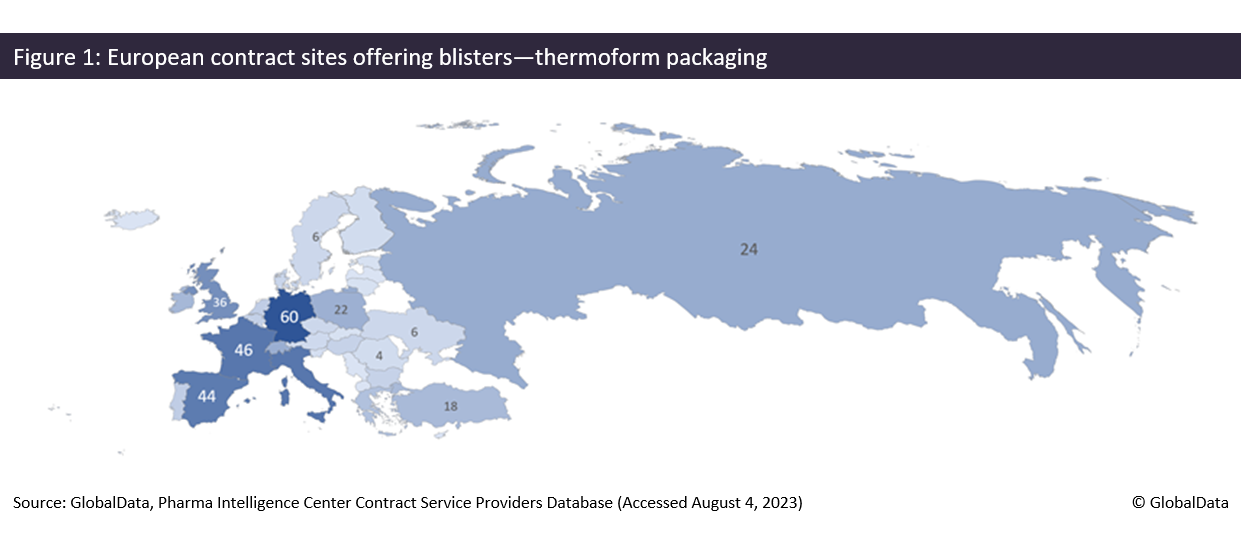Europe is poised to ban perfluoroalkyl and polyfluoroalkyl substances (PFAS), widely used in drug production and packaging. This could potentially cause chaos across a range of industries, which would be left scrambling to find viable replacements.
The ban would apply to pharmaceutical excipients, raw materials and packaging, but not to active pharmaceutical ingredients (APIs). Drug companies and packagers would be particularly impacted, as blister packaging often uses PFAS. Even if the industry finds alternative materials, changing the packaging of marketed drugs will trigger the need for reauthorisation by regulators.
PFAS linked to negative health impacts
PFAS are large synthetic organofluorine chemicals and are a diverse group of thousands of chemicals used in hundreds of drug production and packaging processes. Research suggests that PFAS could cause negative health impacts such as increased cholesterol levels, damage to the liver and the immune system, low birth weight, birth defects, delayed development, newborn deaths and certain cancers.
A 2015 report by the Centers for Disease Control and Prevention, using data from the National Health and Nutrition Examination Survey, found PFAS in the blood of 97% of Americans. Some forms of PFAS can take more than 1,000 years to degrade; for this reason, they are referred to as “forever chemicals.” Blood concentrations of PFAS can rise over time as PFAS break down slowly when humans are repeatedly exposed to contaminated air, water or food. PFAS packaging can also contaminate the products they contain.
On 7 February 2023, the European Chemicals Agency published a proposal to ban the use and production of PFAS to reduce risks to humans and the environment. If a ban is implemented, companies will be given 18 months to two years to introduce alternatives. The ban would come into force in 2025 and would apply to pharmaceutical excipients, raw materials and packaging materials. PFAS are used in blister packaging (especially thermoform) for solid-dose drugs and are also in film-coated elastomeric packaging for injectable drugs such as stoppers, plungers and seals. PFAS are also in fluorine-based starting materials and chemical intermediates used to create fluorinated APIs such as those in efavirenz, mefloquine, fluoxetine and gemcitabine.
The pharma industry is exploring PFAS replacements, such as reformulating or substituting longer-chain PFAS with shorter-chain perfluoroalkyl or polyfluorinated substances including fluorotelomer alcohols, perfluorobutane sulfonyl fluoride-based derivatives and polyfluoroethers. However, these replacements still pose problems from a health and environmental standpoint. In recent years, processes to destroy PFAS have been discovered using a ball milling process that uses boron nitride as a non-corrosive additive.

US Tariffs are shifting - will you react or anticipate?
Don’t let policy changes catch you off guard. Stay proactive with real-time data and expert analysis.
By GlobalDataDe-fanged ban could affect only 1%
Due to how ubiquitously these chemicals are used and the large changes required across a range of industries, it may not be feasible to enforce a total ban on PFAS use. The Guardian revealed in its report on 11 July 2023, entitled “EU to drop ban of hazardous chemicals after industry pressure,” that “a leaked legislative document proposes three options that would restrict 1%, 10% or 50% of products containing hazardous chemicals currently on the market.”
On 3 August 2023, Robert Habeck, the economy and climate minister for Germany – the country that originally proposed the ban – pushed back against it, stating that there should be “no over-regulation for business where it inhibits growth and technology development.”
APIs exempt but potentially harmful
The proposed PFAS ban exempts API in human and veterinary pharmaceuticals, biocidal products and plant protection products, which would all still be allowed to contain PFAS. PFAS are heavily used in pharmaceuticals. According to the European Federation of Pharmaceutical Industries and Associations, “more than 300 fluorinated compounds have been launched as drugs over the last few decades and over 500 more are in late-stage clinical trials, and today about 30% of all APIs contain fluorine. This indicates the importance of fluorine in pharmaceutical compounds, both for existing drugs as well as for an increasing number of hopeful future candidates.”
PCTFE (polychlorotrifluoroethylene) and ETFE (ethylene tetrafluoroethylene), both types of PFAS, are among the materials used for “thermoform” blister packs, used to preserve tablets. There would be complications in replacing these plastics: ETFE or PCTFE film-coated elastomeric components provide an effective barrier against extractables and minimise drug interactions. Primary packaging material replacements for marketed drugs would trigger a full requalification with the relevant health regulators and these processes could take at least five years.
GlobalData’s Contract Service Provider database shows that 452 European sites, owned by 307 companies, offer thermoform blister packaging. As shown in the figure above, these sites are heavily concentrated in Germany, France, Italy, Spain, and the UK. The contract manufacturing organisations Aenova Holding GmbH (Bavaria, Germany) and Delpharm SAS (Paris, France) have the most thermoform blister packaging sites.





